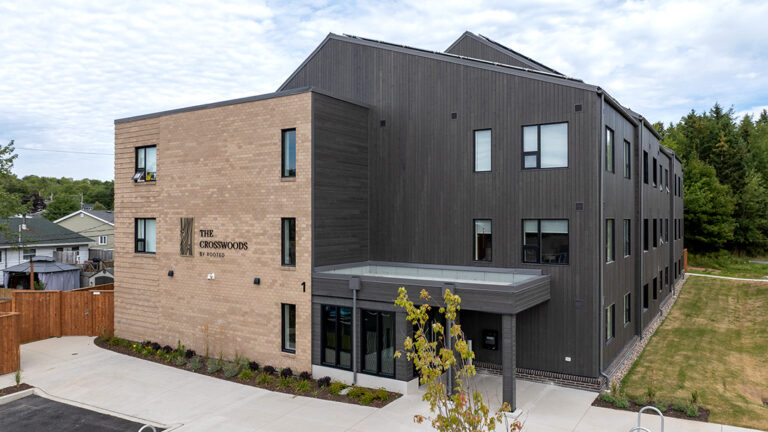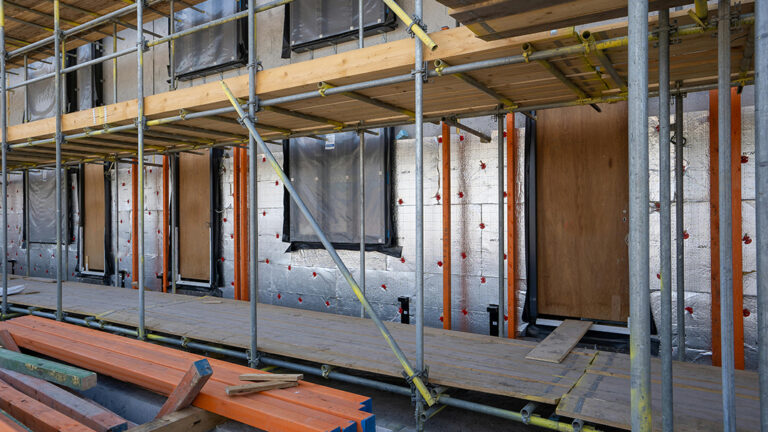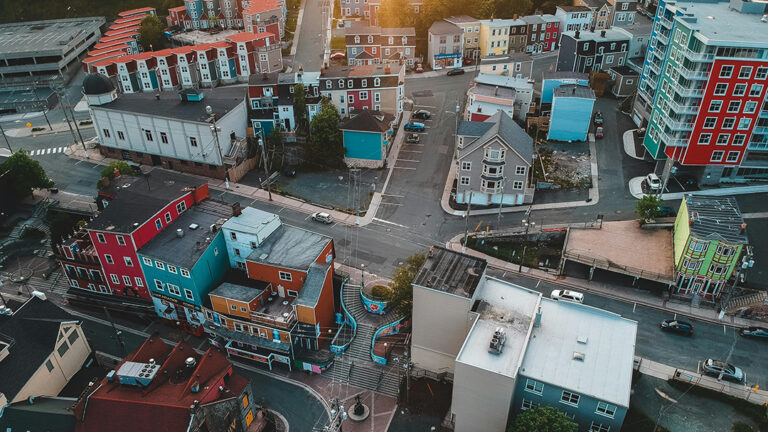Renée started her career with Big Brothers Big Sisters of Greater Moncton and has over 30 years of experience working with non-profits and charities. An avid curler, she is particularly excited about the changing face of the Maritimes.
How did you come to work at the Centre?
The Centre wanted representation in the Maritimes. In my former life—or job—I managed a lot of committees and I worked with non-profits and charities for 30 years in different capacities. The last 14 years, I worked for a national organization—and that really appealed to HR. They liked that I had a national scope, and my experience working with diverse populations and communities. Being from the Maritimes, I understand the culture here and the landscape. I think it’s important for me to do work that directly touches my community, and with my work at the Centre, I’m fortunate enough to do something I love.
What is the housing situation in the Maritimes?
Since starting to work at the Centre, I have learned a great deal about the community housing sector—and just how complex it is. I’ve been talking to people, and doing my own research, and what keeps coming up is that we have the oldest population in Canada. It’s a two-pronged issue: the housing-providers, the boards of directors, etc., are mostly seniors. So, what’s going to happen with the succession? What happens next, who’s going to take over? And, of course, from a housing perspective, we have an aging population that will require affordable housing. These issues are two sides of the same coin. Also, in the Maritimes, we [the community housing sector] are not organized like in B.C., Québec or Ontario. We lack a central framework: there are many housing providers and organizations, and although we do have some support hubs, we lack associations to sort of rally the troops.
Tenant rights vary between provinces and territories, and some places have more robust systems while some have very little tenant protection. What does the tenant-rights landscape look like in the Maritimes?
The laws in New Brunswick seem to slant toward landlords. For example, we don’t have restrictions in regard to the rental increase amount, although the landlord has an obligation to send a two- to three-month written notice, depending on tenancy agreement. Tenants on month-to-month periodic tenancy agreements tend to be more vulnerable. In New Brunswick, after five years of tenancy, it is considered long-term tenancy and the laws around that change as well: it’s much harder to evict someone. And then in places like Nova Scotia, there are no regulations on how much a landlord can increase rent. P.E.I. has a system of rent control in regard to the amount or percentage a landlord can increase the rent. In general, tenant laws aren’t as defined as in the bigger provinces: there’s lots of work to be done, but there is an interest to develop more robust tenancy agreements . Finding out this kind of stuff is really exciting, because that can be very impactful in the sector and a very real way to support our citizens.
How is the homelessness situation?
I grew up in Moncton and there was one homeless person the bulk of my life and everybody knew him—Eddie . He died several years ago, and he had a huge funeral—I don’t know who paid for it, but it was grand. It was on the news and the whole nine yards. Today, in Moncton, we have counted 300 homeless people, and this doubled from last year. In Halifax, I don’t have the exact numbers in front of me, but it’s around 125 homeless people. And in P.E.I., Indigenous Peoples are only 2 percent of the general population, but they account for 14 percent of the homeless population, and that’s a red flag. This is just to say that homelessness in the Maritimes, just a few years ago, wasn’t a glaring problem, you didn’t “see” it, but now there’s a much more visual representation of the issue. And it plays out like in the rest of Canada. The situation has escalated to a point where you have to acknowledge this a real social issue that has developed in the Maritimes: the old “Oh, he/she fell through the cracks” just doesn’t cut it. There is a real need for affordable housing.
What are some of the causes of the uptick in homelessness?
I don’t think there are Maritime-specific drivers for homelessness. Since there hasn’t been adequate affordable housing development Canada-wide, we are now living the consequence of that negligence—just like everywhere else in Canada. The Maritimes is living that new Canadian reality, and we need to empower the organizations that are working hard to provide much-needed services. That’s why I think the Centre’s work is so important, particularly in this area. The organizations need that capacity-building support.
At the Centre, we are always striving to spread the word and encourage organizations to apply for grants. What are some of the challenges you have encountered in your work?
Community housing is the best-kept secret in the Maritimes When I started at the Centre, I began researching different organizations to let them know we have funding, but it felt like searching for a needle in a haystack. What I’m struggling with is finding social housing providers: if I was a tenant in search of affordable housing, I’m not sure how I’d go about it. Some co-ops have more online visibility than others, like a website or a Facebook page, but others don’t even have that. And that’s a Canada-wide issue, one that I hope changes so we can organize more efficiently as a sector.
What are some other changes you have witnessed, not necessarily housing-related, in the Maritimes?
I was always away for Canada Day celebrations, because of work and, for the first time in years, I was able to attend last July, and I was surprised to see the diversity of the crowd. I looked to my husband and said, “This is what Canada looks like.” After all, we need more diversity, we need immigration, we need people to move here to boost the economy—particularly with our aging population. Halifax is historically the more diverse city, but the face of the Maritimes is changing, and that’s exciting to me.
*****
Renée Hébert is a program manager for the Maritimes. She started her career with Big Brothers Big Sisters of Greater Moncton, initially hired in service delivery and eventually took on the executive director position. In 2006, she was hired by Big Brothers Big Sisters of Canada as the regional executive director for the Atlantic and Québec. Renée eventually took on the role of national director, quality assurance & effectiveness, responsible for the implementation and development of the National Accreditation Program and Standards.
Renée has volunteered for Imagine Canada for many years, first as a peer reviewer and currently as a member of the Imagine Canada Standards Council. She holds a degree in child study from Mount Saint Vincent University in Halifax, and lives in Moncton and is fluently bilingual. In her spare time, Renée enjoys curling.



